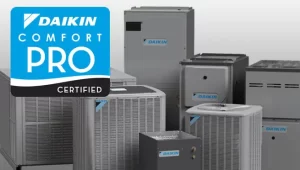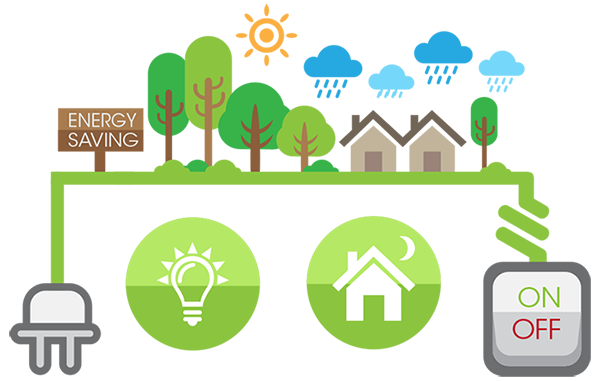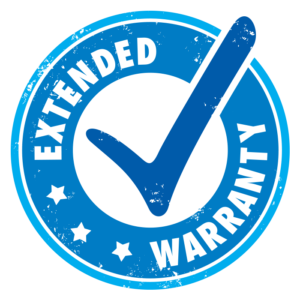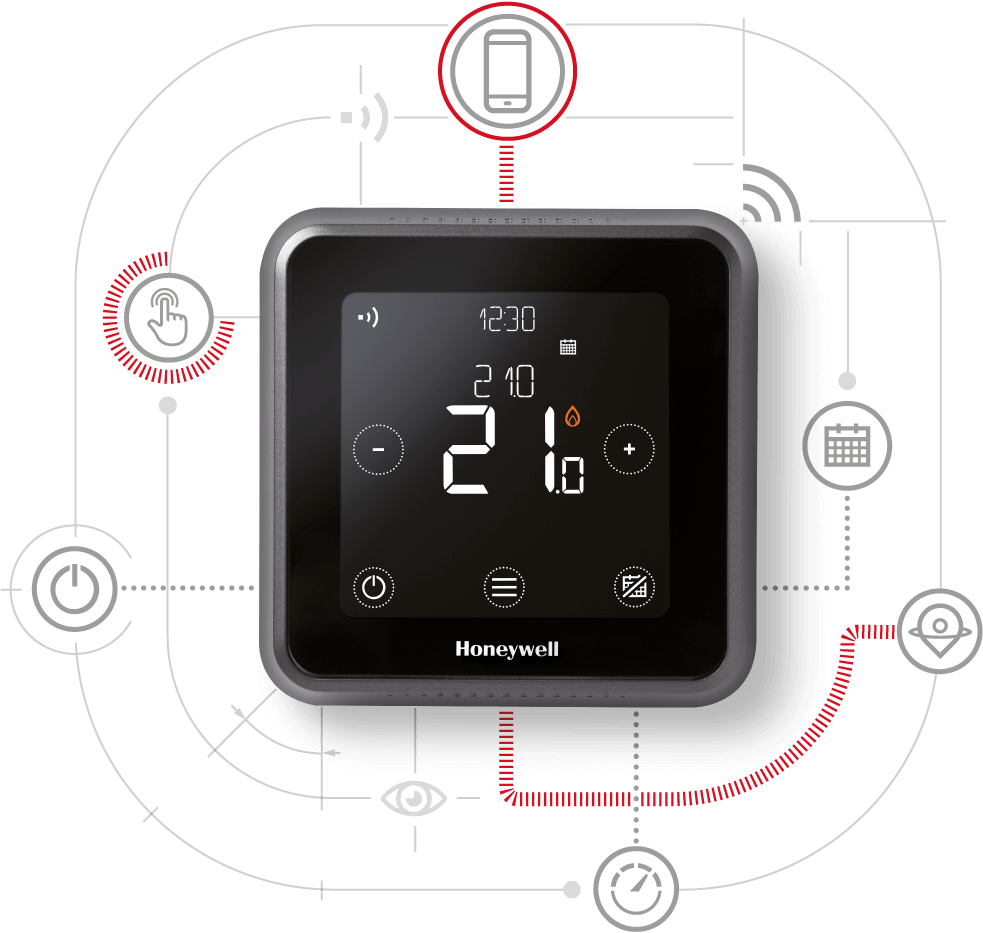Q. What regular maintenance do heating and air conditioning systems need?
The most important part of HVAC maintenance aspect is maintaining unrestricted air flows. Dust, dirt, and debris are an HVAC system’s worst enemies. Whether it’s an indoor or outdoor unit, you must keep all filters clean and heat exchangers and coils free of restrictions.
We recommend that your heating and cooling system be checked and serviced twice a year; ideally a spring and autumn tune-up. Also we recommend that you change your filter regularly, depending on the type of filter you have. This alone can eliminate many of the most common problems that need fixing and can significantly reduce the likelihood of a serious breakdown. A Folsom service plan is your assurance that these maintenance needs are met regularly and that any potential problems are promptly identified.
Q. Why do I need to change my filter regularly?
Regular filter replacement helps your heating and cooling system operate at peak levels and improves indoor air quality. It is important to change filters regularly to ensure proper air flow and to keep your home free from dust, allergens and germs. Depending on the type of filter you have, you may require weekly or monthly filter replacements. Your Folsom Air service or installation technician will recommend the ideal filters and replacement schedules for your unit(s).
Q. How often should I replace my filters?
In general, Folsom Air Conditioning recommends that you replace your disposable filters at least once a month. If you have washable filters, they should be cleaned once a month. Your service technician will recommend a replacement schedule that delivers the optimum efficiency and filtration for your specific system. With a service plan, we clean and inspect your HVAC system twice each year. Part of the service includes changing the filters or servicing your filtering system. Unless you have special circumstances, our service should be adequate. We recommend that you visually check filters and filtering equipment monthly. If filters look dirty, they need to be cleaned or replaced.
Learn more by visiting: goairfilters.us
Q. In addition to changing my filters, what maintenance should I do on my heater and/or air conditioner?
Most maintenance should be performed only by a qualified service technician. But here are some things that you can do to assure optimal performance:
- Keep ground mounted outdoor units clear of debris, clutter and weeds; they can reduce the airflow to the unit.
- Use caution with weed trimmers around the unit to prevent damaging control wiring.
- Keep pets away from the unit; pet urine can cause expensive damage.
Q. How often should I have maintenance done on my air conditioner?
You should have maintenance done on your air conditioning system at least once a year – spring to early summer being the best times. This not only ensures maximum efficiency, it enables us to foresee any possible problems that may occur in the near future.
Q. Is there anything I should check prior to calling for service?
Check to be sure that the air conditioner or furnace is turned on. Check that the breakers and the disconnects are turned on and be sure the thermostat is set correctly. Also make a note of any strange noises or smells.
Q. How do I know if my system is working properly?
Is it making strange noises? Is it cooling or heating all areas of your home sufficiently? Has it been taking longer to cool down or heat up? Have your utility bills been rising for no apparent reason? Any of these are signs that you may have a problem that needs service. In most cases, the longer you delay, the worse any underlying problems will get. So be sure to contact Folsom Air Conditioning to check out your system whenever you notice anything out of the ordinary.
Q. How are the sizing capacities of heating and cooling systems measured?
Heating and cooling systems sizing is based on B.T.U.H. (British Thermal Units Per Hour). Air Conditioning and Heat Pumps are also rated in tonnage. 12,000 BTUH equals one (1) ton. Residential systems can range from 1 to 5 tons.
Q. How important is it to get the right size of heating and cooling equipment?
Sizing HVAC equipment is very important from the standpoints of both comfort and energy use. Heating and cooling equipment that are over-capacity will not run as frequently or as long when it does run. In both cases, this may mean poor humidity control. It could also result in temperature variations or noticeable cycling. Over-capacity equipment will not be as energy efficient as properly matched capacity either. On the other hand, equipment that is under-sized, will obviously result in loss of comfort during temperature extremes.
Q. What size HVAC system should I have?
Unfortunately, there’s no simple rule of thumb for determining the ideal size of system for each home. For example, depending upon the construction of your home, one (1) ton of air conditioning can cool anywhere from 300 to 800 square feet of home, again depending of the efficiency of the house. The only way to insure the size of the system you purchase will be large enough to heat or cool your home, but not any larger than you need, is to have your home’s individual heating and cooling loads calculated, and your needs evaluated by a licensed professional. A Folsom representative will perform a FREE detailed In-Home Energy Analysis to determine a selection of systems that will work best for your home’s needs and your budget.
Q. Is a system with more capacity better?
No. A larger heating system with more capacity delivers less comfort and costs more to operate. An air conditioner is at its least efficient when it is first turned on. A system with too much capacity will run in numerous short cycles, turning on and off repeatedly, therefore causing it to be less efficient. Also keep in mind that an air conditioner only removes humidity when it’s running, so a system with shorter run cycles doesn’t remove humidity from the air very well.
Q. How do I know if my A/C unit is big enough?
Bigger isn’t always better; its performance and efficiency that count. Before purchasing a replacement system you should always make sure your system is sized properly to match your needs and budget. Your Folsom Comfort Specialist will thoroughly assess your home and comfort requirements to determine the proper size and make the appropriate recommendation.
Q. How is the efficiency of heating and cooling equipment measured?
When purchasing a furnace, heat pump or air conditioner, ALWAYS ask about its Efficiency Ratings. They will tell you will tell you how efficiently the unit uses fuel (gas, oil or electricity). The most-frequently used efficiency ratings are:
- SEER (Seasonal Energy Efficiency Ratio): This ratio tells you the amount of cooling your system will deliver per dollar spent on electricity The SEER rating of any unit can range anywhere from 13 to 17. The higher the SEER the more efficient the system will be and the less it will cost in the long run to own and operate.
- HSPF (Heating Seasonal Performance Factor): Similar to SEER, it is a measurement of efficiency of the heating portion of a heat pump. HSPF ratings range from 6.8 to 10; high-efficiency units have efficiencies of 7.5 HSPF or above.
- AFUE (Annual Fuel Utilization Efficiency ratio): A measurement of the percent of heat produced by a furnace for every dollar of fuel consumed. The higher the AFUE rating, the lower the fuel costs. All furnaces manufactured today must meet at least 78%. Older furnaces (10 – 15 years or older) may fall below this minimum. Furnaces with AFUE ratings from 78% to 80% are considered mid-efficiency; ones with AFUE ratings above 90% are considered high-efficiency.
- MERV (Minimum Efficiency Reporting Value): A filter rating system relating to the size of the holes in the filter that allow air to pass through. The higher the MERV rating, the smaller the holes and the higher the efficiency in capturing contaminants. MERV rating range from a low of 1 to a high of 16.
- ENERGY STAR: An Environmental Protection Agency designation attached to HVAC products that meet or exceed guidelines for high-efficiency performance above the standard government minimums.
Q. How can I increase the efficiency and life of my home’s heating and cooling systems?
A few quick tips:
- Clean and replace your filters frequently.
- Your system will heat and cool more evenly when the blower is in the “on” position, on the summer set to "auto" position. The blower provides constant air movement throughout the home, and allows for better filtration.
- Install shades, drapes, shutters, or screens on windows that are exposed to extreme sunlight to keep room temperatures at moderate levels.
Learn more by visiting: Maintenance Agreement Page
Q. Should I close the registers and doors to areas of the home that I do not use on a regular basis?
No. Every system is designed to cool a certain number of square feet. By closing registers and doors in certain rooms, you disrupt and decrease the systems’ airflow and efficiency. Your system will have to work harder to cool less space, making it cycle more and become less efficient.
Q. How long should my air conditioning system run in a cycle?
There is no exact answer for how long your system should run during each cycle. The average air conditioner is sized to remove the heat from your home as fast as it comes in. Therefore, ideally, on a 100° day the system should be able to keep up with the incoming heat, but not gain on it and not be able to turn off. The cooler it is below 100°, the more the system will cycle on and off. So it depends on the environment of each individual home and the condition of the equipment.
Q. Should I try to keep my air conditioning system from running too much?
Generally speaking, a unit that is either on or off is less expensive than one that keeps cycling on and off repeatedly. Every time your system starts up, it will use a lot of electricity and not produce much cooling. That’s why a smaller system is often more economical to operate: even though it runs nonstop and may deliver less comfort, it will usually consume less power than a larger system that cycles on and off.
Q. What air temperature should my air conditioner produce?
The air temperature produced by your system depends on the temperature of the air going into it. Generally, the air produced should be 15°-20° below what enters the system. So if the entering return air is 80°, the exiting supply air should be about 60°-65°. However, that only works on a system that is operating properly and has been running at least 15 minutes on a warm, dry day with a home that is about 80° inside. On a milder day, with an indoor temperature 70, the air coming out should be 50-55.
Q. At what temperature should I set my thermostat?
Temperature settings depend on the time of year and your personal preferences. In the summer, the average temperature setting is 75°-80°. In the winter 68°-72° is the norm. Remember, when leaving your house; try to avoid drastic temperature changes. Do not set your temperature back more than 5°; this will cause your unit to work harder to achieve the desired temperature setting.
Q. What are the advantages of a programmable thermostat?
Because they are electronic, programmable thermostats are more accurate and efficient than thermostats that contain mercury. Plus, they allow you to automatically control the temperature in your home at different times of day without ever touching your thermostat.
Q. Is variable speed equipment superior and/or necessary?
Variable speed refers to a furnace’s or air handler’s indoor blower motor. Different speeds control the flow of air throughout your home. Variable speed blowers automatically change speeds to meet the different airflow needs of the heating and cooling cycles. Variable speed motors can use 1/7th the energy and are excellent for customizing comfort levels in different zones of your home. A variable speed motor can also help clean the air and control the humidity.
Q. What is two-stage heating?
Two-stage heating means a furnace has two levels of heat output: high for cold winter days and low for milder days. Two-stage furnaces start in the first stage, instead of reaching full capacity all at once. That means there is no sudden blast of air. The low setting meets household heating demands 80% of the time, allowing a two-stage unit to run for longer periods and provide more even distribution of heated air. Because the furnace operates mostly in its lower-capacity first stage, it burns less fuel than a furnace that always runs at full capacity and then has to shut off when the heating demand has been met.
Q. What is I.A.Q.?
I.A.Q. stands for Indoor Air Quality. Today, various products are available as add-ons to your existing heating and cooling system to improve the quality and healthiness of the air inside your home. These items include
- Electronic- or Media-Type Air Filters: Filtering the air within your home will help eliminate smoke, pollen, odor, dust mites and allergens. This will allow you to breathe easier, sleep better and enjoy your home more.
- Whole-House Humidifiers: Whole-house humidifiers provide consistent humidity levels throughout the home, and some models even adjust the humidity level automatically. The average heated home has a humidity level of less than 20%. The recommended humidity level in the winter should be between 35% and 45%.
- Air-to-Air Heat-Recovery Ventilators: These ventilator systems remove stale air from inside the home, while bringing in fresh air from the outside that is warmed during the transfer process.
Q. How important is air quality and what factors need to be considered?
An air quality system can greatly improve both your comfort and your health. The areas of air quality to consider are (1) purification, (2) filtration, (3) humidity control, and (4) ventilation. A wide number of air quality features come standard with many new heating and air conditioning systems; others can easily be added to existing systems. Contact Horizon Systems to discuss your air quality options.
Q. Do electronic air cleaners really work?
Electronic air cleaners can greatly improve home air quality and comfort levels. If you suffer from allergies or have pets, they’re a must. Some electronic air cleaners can even remove dust particles and pollen as small as .10 micron. Horizon Services offers a variety of air filtration devices. Talk to your Horizon Comfort Specialist to discuss your options.
Q. How important is it to have a quiet heating and air conditioning system?
Extremely important. Sound intensity is measured in units called decibels (dB). A normal conversation is about 60-70 dB. A telephone dial tone produces 80 dB; a lawn mower produces 107 dB or more. Sustained exposure to sound levels of 90-95 dB may lead to hearing loss, so it’s important to own the quietest heating and cooling system you possibly can.
Q. What is the ideal indoor humidity level?
The American Society of Heating, Refrigerating and Air Conditioning Engineers (ASHRAE) recommend a household humidity level between 30 and 60 percent.
Q. Why are humidifiers used more in heating than cooling?
The average comfort range for relative humidity in a home is from 30 to 35%. When cool outdoor air enters your home, it tends to dry out as it warms up, which can cause static electricity build-up and sinus problems. A humidifier will add moisture back into the air and minimize these problems during the winter months. However the humidity level achieved in a home is effected by how tight a home is, how often the doors open and close size and style of humidifier.
Q. Are there any air conditioning systems that are safe for the environment?
Yes. Several manufactures have developed new systems that contain environmentally-friendly refrigerants such as R-410A and similar blends. 410A is a chlorine-free coolant that is safe for the Earth’s ozone-layer and delivers superior cooling than traditional refrigerants. In fact, in 2010, systems that used R-22 will be phased out and replaced with 410A systems. And by 2020, no more R-22 can be manufactured.
Q. How do I know whether my heating and cooling equipment needs replacement or just repair?
Not an easy question to answer, but here are some factors to consider:
- The age of the current system. Today, any system that is more than ten years old is probably behind the times in terms of efficiency.
- Does the current system provide the level of comfort that you want? There is a growing difference between “builder grade” and consumer choice in what a system can offer in terms of comfort and convenience.
- How much will the repairs cost…and how many more repairs will you need in the future? Is keeping an older system operational worth the time, the money and the inconvenience? Sometimes you need to know when to cut bait and say goodbye to your old heater or air conditioner.
At Folsom Air, we can work with you to prepare a side-by-side cost-benefit analysis so that you can compare whether it is more advantageous for you to keep your current system or replace with a newer one.
Q. It’s been years since I shopped for a new heating and cooling system. What changes in technology and equipment do I need to know about?
If you’re deciding on a new system and have not kept up with advances in the industry, you will be amazed at the number of choices that you have to make. Today’s comfort systems offer a surprising number of options and combinations – from individual heaters and air conditioners to integrated or “hybrid” systems. Systems can vary widely in terms of energy efficiency and cost. The ability of systems to monitor conditions and adjust automatically has increased dramatically. And a wider variety of air quality add-ons are available than ever before.
These changes make the replacement decision even more complex than ever, so you can see how important it is to find a HVAC company that will work with you to develop a system for your situation and budget. At Folsom Air, our goal is to be a company that will partner with you to not only install a system that is appropriate for your situation, but then help you keep the system operating at peak performance.
Q. When should I replace my existing heating and/or air conditioning unit system?
All systems and units are different. Here are some rough lifespan guidelines to help you decide whether fixing or replacing is the right decision:
- Average Lifetime of an Air Conditioner: 8-15 yrs (depending on the location)
- Average Lifetime of a Furnace: 15-20 yrs
Keep in mind that these are just guidelines. Some units last longer than that with regular maintenance and replacement of parts. But if a unit has been repaired repeatedly, or has been run excessively, it might make more sense to replace it even sooner. Paying for repairs to an old or inefficient system often simply prolongs the inevitable. An older system that breaks down once is likely to break down again…and again. That means more emergency service calls or, worse yet, the risk of damage to your home or to other components of your heating and cooling system.
There’s also an ongoing cost factor to consider. Restoring your old system will only bring it back to its current level of energy efficiency. After you’ve recovered from the repair bills and the frustration of system breakdowns, you still won’t save on your energy bills.
Some replacement systems can cost less than the cost of repeated repairs. And in many cases, installing a new heating and cooling system can actually pay for itself in energy savings within a relatively short time.
Also, when replacing a heater or air conditioner, it is usually best to replace both units at the same time. This way, you’ll save on installation costs and both units can be serviced on the same maintenance schedule and have the same approximate lifespan.
Q. What should I look for when choosing a new heater, heat pump or air conditioning unit?
Here are some general rules of thumb when you are ready to replace your existing equipment:
- Choose a manufacturer that has a good reputation for quality and durability.
- Choose a model that with a high efficiency rating to bring you better comfort and lower your seasonal energy bill.
- Choose the correct equipment size and system for your home.
- Don’t just buy a unit just because it is on sale and seems like a great deal at the time; do some research on the product or ask the installation representative for more product information.
- Finally, choose a reliable company with excellent customer satisfaction and a track record of service after the sale. Talk to your friends and neighbors. Check out contractor ratings and reviews online from organizations like Better Business Bureau.
Q. If energy prices continue to escalate, what would be most effective in controlling home comfort costs?
Here’s checklist of options:
- Make sure that your home’s current HVAC system is properly maintained and adjusted.
- Change attitude and habits. Rethink your clothing, your appliances and your activities in your home – anything that can produce lower temperature settings in winter and higher temperature settings in summer can help control energy use.
- Explore energy-saving add-ons for your current system: thermostats, humidifiers, and zoning controls.
- Plant trees and landscape for summer shade and winter sun.
- Add insulation, install weather stripping and plug air leaks throughout your home.
If your current system is in need of replacement, your efficiency options are expanded and the potential for savings compared to your existing system can be quite dramatic. Folsom Air can provide the consultation and information about all options and system combinations that might be right for your situation.
Q. How much does a new replacement system cost?
Due to the many different makes, models and customer needs, price is an issue that can only be solved by doing a thorough evaluation of your home and existing equipment. At Folsom Air, there is no charge for an in-house replacement proposal.
Q. What do I do if I can’t afford a new HVAC system?
Folsom Air offers several financing, subject to approved credit. Your Comfort Estimator can recommend the financing plan that’s best for your needs.
Q. If I purchase a new heating and cooling system, will I be eligible for a tax break?
Not anymore. The home improvement tax credits provided under the Energy Policy Act of 2005 expired on December 31, 2007. If you purchased eligible high-efficiency heating or cooling equipment in 2006 or 2007 you could be eligible; if you did not claim the credit you could file an amended return. Some legislators have indicated a desire to present legislation that would renew the credit.
Q. Why is it important to have a Service Agreement?
A Folsom Maintenance Agreement Plan is a great way of protecting you in the event of sudden breakdowns in equipment and is your guarantee that you’ll receive regularly scheduled maintenance. With a Maintenance Agreement, you will receive priority service for plumbing, heating and air conditioning calls (routine or emergency), a 20% discount on all repairs. What’s more we’ll make sure that regularly scheduled preventive maintenance and filter replacements are done on time to keep your system working at peak performance.
Q. Why is it important to choose a reliable company?
Many companies in the HVAC industry don’t express the need to be there for their customers after installation or service of heating and cooling systems. But a solid, good reliable company, such as Folsom Air, will stand behind its work. One way is through our Maintenance Agreement Plans which guarantee our workmanship and provide you with priority service. Another is our 100% Customer Satisfaction Guarantee: if you’re not completely satisfied with our service we’ll do whatever it takes to make it right.

















